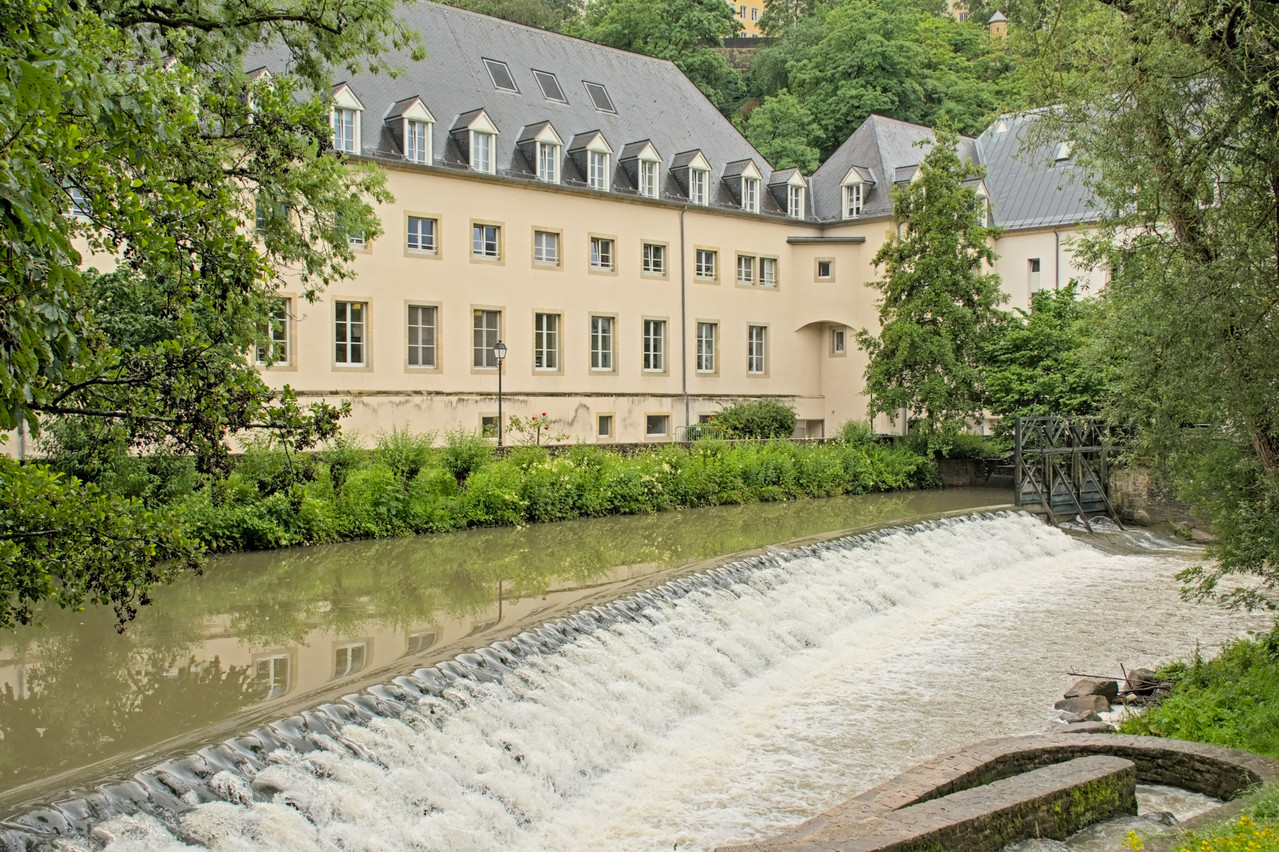Water moves in a series of processes--like rain, or snow--between oceans, rivers, lands, and the atmosphere. Changes in one part of this cycle, such as the temperature of a river, for instance, can affect all the following links of the chain.
Understanding and adapting to the change in the water cycle will perhaps help us prevent further damage. “Things have changed,” Dr Laurent Pfister reassures Delano in an interview. “About 25 years ago, you would most certainly have a hard time conveying a certain message to politicians (…). Now, the research and opinion of scientists are actively sought out by politicians.”
Imbalances caused by human activities
Pfister works as the head of the “Environmental sensing and modelling” research unit at List--studying the impact of climate change on water cycles. As their studies show, “human activities have really played the role of catalysts and have accelerated certain mechanisms”, and there is little time to fix our trajectory at this point in time. Natural disasters such as the heavy precipitations that brought the floods down on Luxembourg last year are likely to become more recurrent, as are droughts.
But there is still hope. Understanding the different components of the water cycle-and how the latter will change in the next decades--is crucial to foreseeing and dealing with these catastrophes. This, according to Pfister, “will also allow us to better anticipate how that is going to impact for instance agriculture, like food production or also the availability for producing drinking water.”
He adds: “You may have on the one hand droughts--obviously a lack of water--, but at the same time, you might have an increase in concentration of pollutants.” The changes in temperatures caused by climate change can also have severe consequences on microorganisms, fish, or other essential parts of different ecosystems.
Identifying the issue
Scientists who work on these issues have to wade through many obstacles while working on damage control strategies. First, there is the issue of technology. Forecasting and prediction tools used in the field of hydrology were developed under the assumption that the world wouldn’t change. This isn’t true anymore and climate change is pushing them to their design limit, as the environment continues to evolve.
And though decision makers are more open to new ideas, it is difficult to address short-, middle- and long-term challenges simultaneously, Pfister explains: “The most difficult ones are probably the long-term ones because it is difficult to see the effect of --say--a measure that you would propose based on some models. (…) Certain measures take years if not decades to bring positive results.” Politicians would, however, have to balance many elements in their strategies, and science is only one part of a large equation, according to Pfister.
When science does manage to be heard and applied to politics and legislation, it proves its worth in the long-term.
The next wave
Twenty-year old Mara Manieri highlighted this in her project called, “Water quality in Luxembourg and its effects on microorganisms”. A member of the Jonk Fuerscher foundation--an association fostering and encouraging youths to start, develop and conclude science projects, Manieri decided to have a closer look at fertilisers and their impact on local water sources.
Growing up in the countryside in the north of the country, the young scientist--who currently studies medicine in Munich-- recounts how she came up with the idea: “I live in the countryside, so I’ve naturally asked myself questions about what was happening around me. I saw farmers strewing manure on the fields. I walked along rivers all the time. So the project came quite naturally as an opportunity to search for answers for questions I always had.” In a moment of serendipity, her friend mentioned the contest organised by the Fondation Jeunes Scientifiques Luxembourg. Manieri signed up for it.
A win and a nomination as Young Scientist of 2020 later, she presented--alongside Pfister--her findings at a conference on the future of water. Looking at the levels of phosphorous and nitrogen, which are used to stimulate the growth of plants in water sources that either were strictly regulated by fertiliser bans or restrictions, Manieri found that the areas protected by laws allowed aquatic life and ecosystems to thrive. Meanwhile, samples with high levels of nitrogen and phosphorous presented damaged organisms.
The science behind it is more complex, as Manieri underlines, but it highlights the effectiveness of regulation to preserve water quality and aquatic populations.
The future of water
Youths have shown again and again their commitment and proactiveness in the fight for climate. The “Greta Thunberg generation”, as Manieri puts it, believes that change is possible.
Pfister noted their energy too: “I see way more optimism--they seem to be more positive about the future and they have this energy and drive to do something proactively. One can clearly see that--well, the older generations seem to be, well, more fatalistic. But I think that’s human nature.”
Manieri’s other mission when she told Delano, and the audience later on about her project, was to raise awareness for the Jonk Fuerscher . “Meeting scientists who work in the same field is a lot of fun,” she says. The program, by bringing youths in contact with certain fields of science and technology, allows them to discover their potential.
Asked whether the relatively slow implementation of climate-positive changes frustrated her at times, Manieri says: “we still need to see concrete actions perhaps, or more concrete actions than those currently undertaken.”
However, the future is not lost yet. As Manieri puts it, “at least we talk a lot about the subject, and that’s a first step.”
You can find out more about the Jonk Fuerscher foundation .
